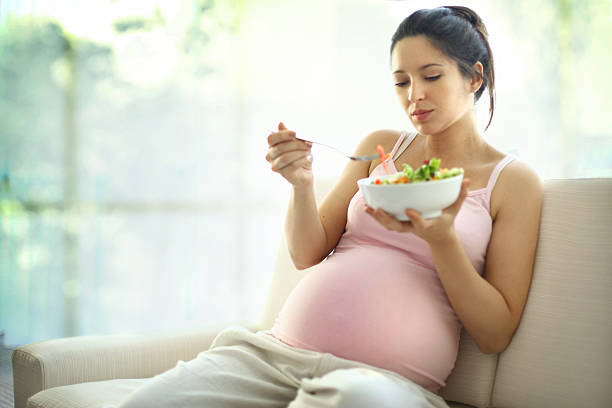Good health is dependent on a healthy diet and lifestyle. This is especially true during pregnancy when you need to eat well and get the most nutrients for your baby. A healthy diet and lifestyle will also help ensure a healthy weight gain, ensure you get the key vitamins and minerals you need, and reduce your risk of pregnancy complications.
What foods should I eat to ensure a healthy pregnancy?
Many European countries have food-based dietary guidelines (FBDGs), often represented by a food map or a food plate. You can get the nutrition you need during pregnancy by following the guidelines outlined in your country.
As with the general dietary guidelines for pregnancy, you should eat various foods from all food groups. This includes fruits, vegetables, grains, starches, proteins, dairy foods, plant-based substitutes, fats, oils, and protein.
These are some guidelines to help you eat a healthy diet throughout pregnancy.
Your energy requirements were met.
While energy needs rise during pregnancy, it is not a myth that you should “eat for two”. On average, non-pregnant women require around 2,000 kcal (calories). This number increases during pregnancy by:
- +70 kcal/day in the first semester – equal to one slice of whole-grain bread
- +260 kcal/day in the second semester – equal to one extra bowl of fruit or yoghurt
- +500 kcal/day in the third semester – equal to one additional medium-sized meal
Starches and grains, preferably whole grain
Grains, particularly whole grain, are essential during pregnancy. They provide carbohydrates that our bodies use to produce energy and fibre, minerals, vitamins, and other nutrients. Whole grains such as whole-grain pasta, brown rice, and oats should be included in every main meal.
Get plenty of fruits, vegetables and other healthy foods
You and your baby will be able to get all the vitamins and minerals you need from fruits and vegetables. They are also rich in fibre, which, when consumed with plenty of fluids, can help to prevent constipation. You should aim for five portions each day of approximately 80 g – about 400 g total.
You can choose from a wide range of protein-rich foods
Your baby’s growth and development is dependent on protein. You should eat two to three servings of protein-rich foods each day, including lean meat, fish, seafood, eggs and legumes.
It is recommended to consume one to two portions of oily fish per week (such as salmon or sardines). Limiting oily fish intake is a good idea. Some fish can contain pollutants that can build up and cause health problems. High levels of mercury in fish such as shark, marlin, and king mackerel can cause problems for your baby’s nervous systems.
Dairy products and fortified options are available.
Dairy foods are high in protein and many vitamins and minerals such as calcium, iodine, and riboflavin. These nutrients play an important role during pregnancy. Two to three servings of dairy foods per day is a good goal, including unsweetened yoghurts, cheese, and milk alternatives. Alternative plant-based calcium sources are available for those who do not want to eat animal products, such as fortified soybeans or nut products.
While many cheese slices can be eaten during pregnancy, you should steer clear of soft, unpasteurised cheeses. These may contain bacteria that could pose a danger to your baby’s health.
Replace saturated fats with unsaturated fats
Fats can be an important part of a healthy diet. However, not all fats have the same impact on your health. It would be best if you tried to limit intake of foods high in saturated fat such as fatty meats or tropical oils like coconut oil by replacing them with foods rich in unsaturated fats such as unsalted nuts, avocado, oily fish and plant oils like olive or rapeseed oil.
Get plenty of fluids
Hydration can be important for your overall health. Drinking plenty of fluids during pregnancy can help reduce constipation and lower the risk of urinary tract infections. Pregnant women need to drink around 2 litres per day of water from food and beverages. This number increases to 2.3 litres daily during pregnancy. It would be best to consume between 1.6 and 1.8 litres per day, which is approximately 8 glasses.
All drinks will provide hydration, but just like the general population, you should limit intakes of sugar-sweetened drinks. Water is the best option. You can also choose to drink milk or caffeine-free tea. You can drink coffee and other caffeinated beverages as long as your daily recommended caffeine intake is below 200 mg per day. That’s about 2 cups of coffee per day.
Are there any supplements I should take while pregnant?
A healthy, balanced pregnancy diet will provide the majority of vitamins and minerals your baby needs. However, some nutrients such as folate or vitamin D can be difficult to obtain from food alone. Supplements are often recommended. Always consult a dietitian or your general practitioner (GP) before taking prenatal supplements.

